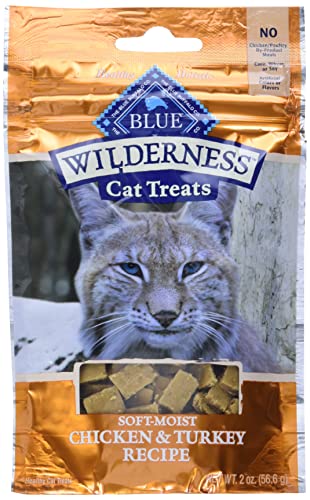Curious if your cat can safely enjoy peanut butter?
As a cat owner, it's important to know what human foods are safe for your pet.
Cats have unique nutritional needs as obligate carnivores, relying on animal-based nutrients. So, where does plant-based peanut butter fit in?
Let's clarify this and see if your cat can enjoy a bit of this well-loved spread.
Understanding Cats' Dietary Needs
Cats are obligate carnivores, which means their bodies are designed to process and thrive on animal-based proteins.
Unlike humans, who are omnivores and can consume a variety of food types, cats require a specific diet to maintain optimal health.
While peanut butter is a delicious treat for humans, it does not provide the essential nutrients that felines need.
As a responsible cat owner, it's crucial to provide your cat with a well-balanced diet tailored to their specific needs.
The Risks of Peanut Butter for Cats
Cats might be curious to try new foods, but it's good to know the risks of giving them human treats.
So, let's discuss the health risks associated with peanut butter for cats.
Weight Gain and Obesity
Peanut butter contains a high-fat content that can pose a risk to cats when consumed in large amounts.
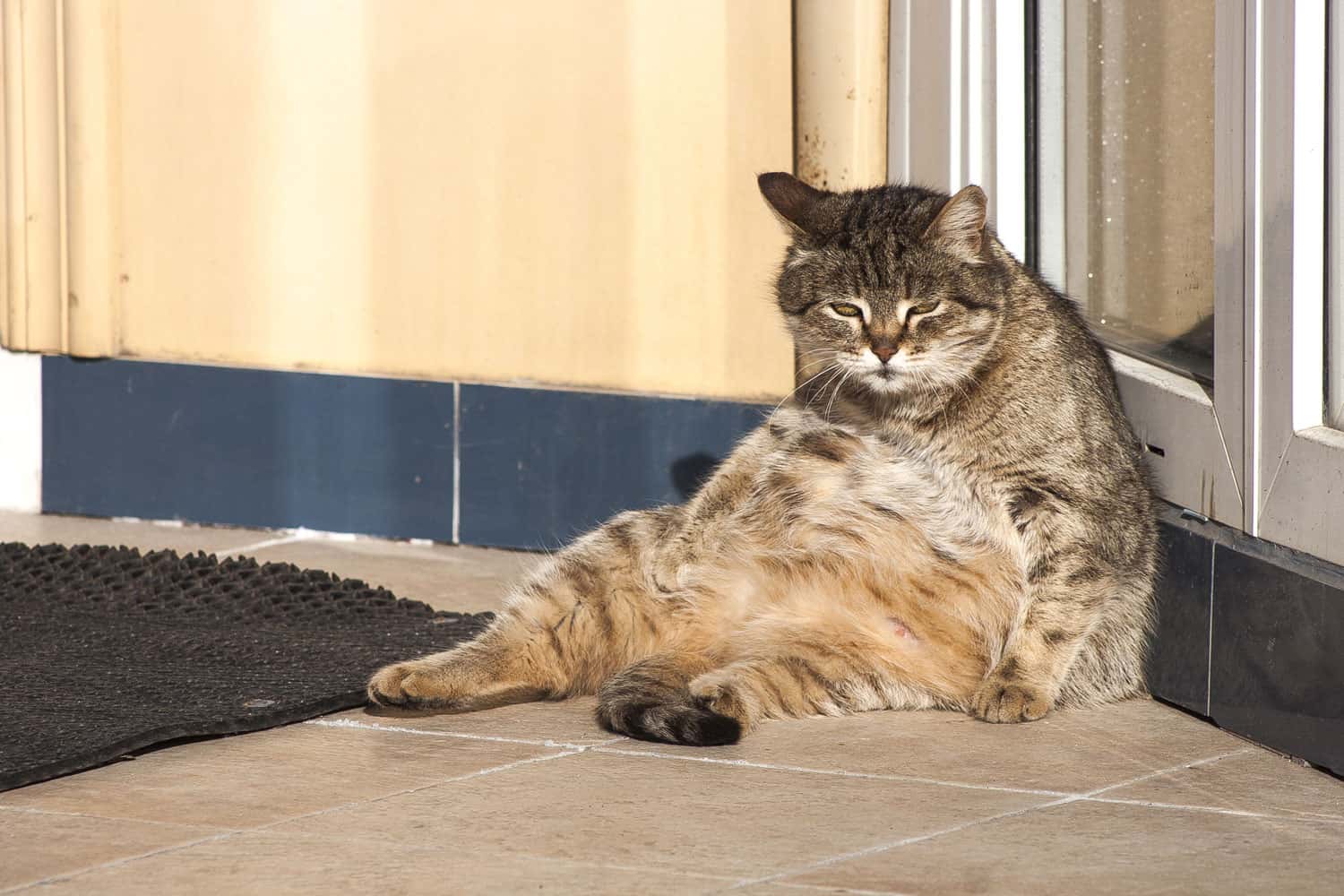
This high-calorie spread can contribute to an excess energy intake, which, if not balanced with sufficient physical activity, can lead to weight gain.
Over time, this weight gain can progress to obesity, which can have serious health implications for cats, including diabetes, heart disease, and joint problems.
Therefore, it's important to regulate the amount of peanut butter your cat consumes to maintain their overall health and well-being.
Xylitol Toxicity
One of the most significant dangers of peanut butter for cats is the potential presence of Xylitol.
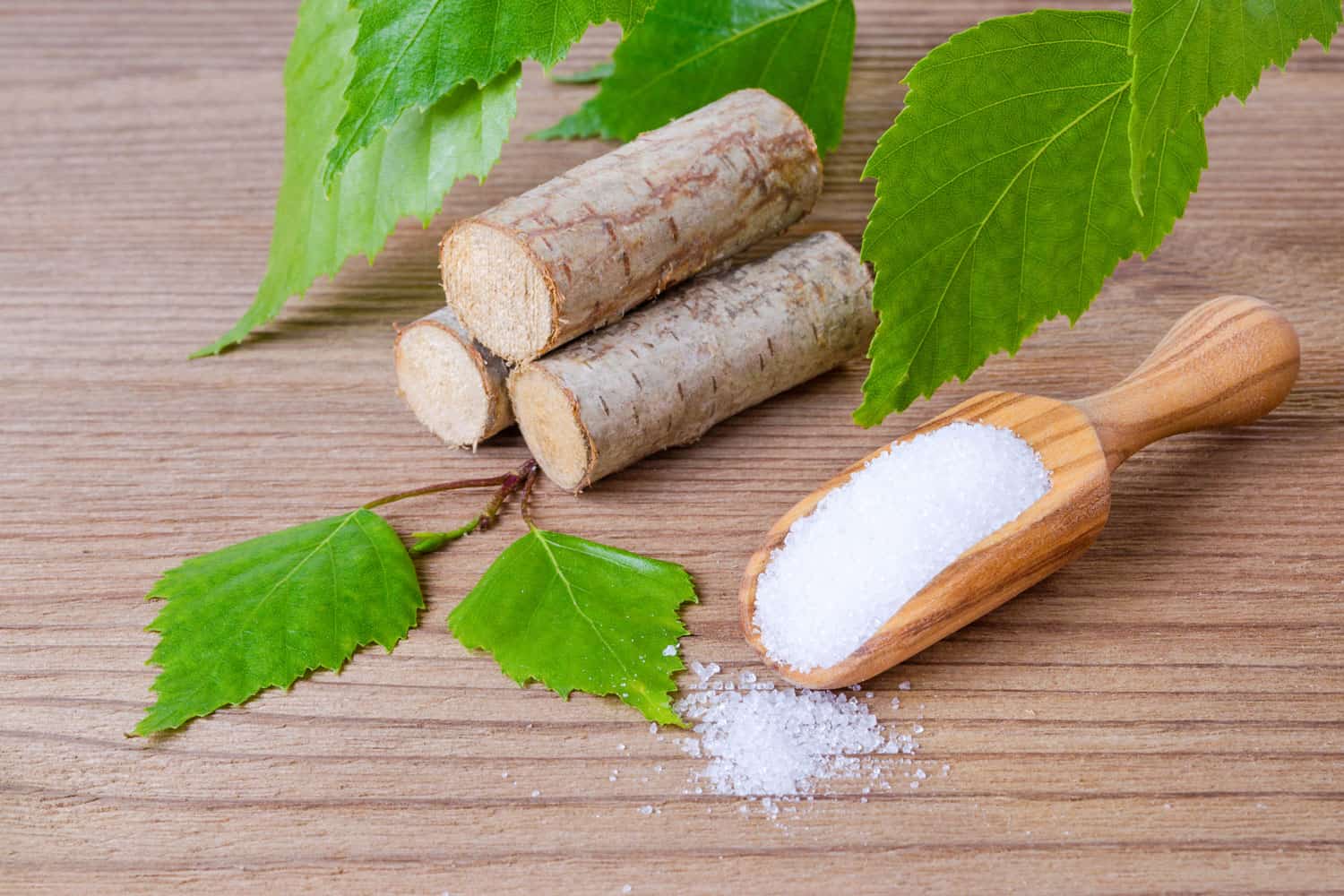
Xylitol is an artificial sweetener often used in low-calorie or sugar-free products.
It is highly toxic to cats, and even consuming small amounts can lead to rapid insulin release, hypoglycemia, seizures, and liver failure.
It's crucial to check the label of the peanut butter you buy and make sure it doesn't contain Xylitol.
Allergic Reactions
Just like humans, cats can also experience allergic reactions to peanuts.
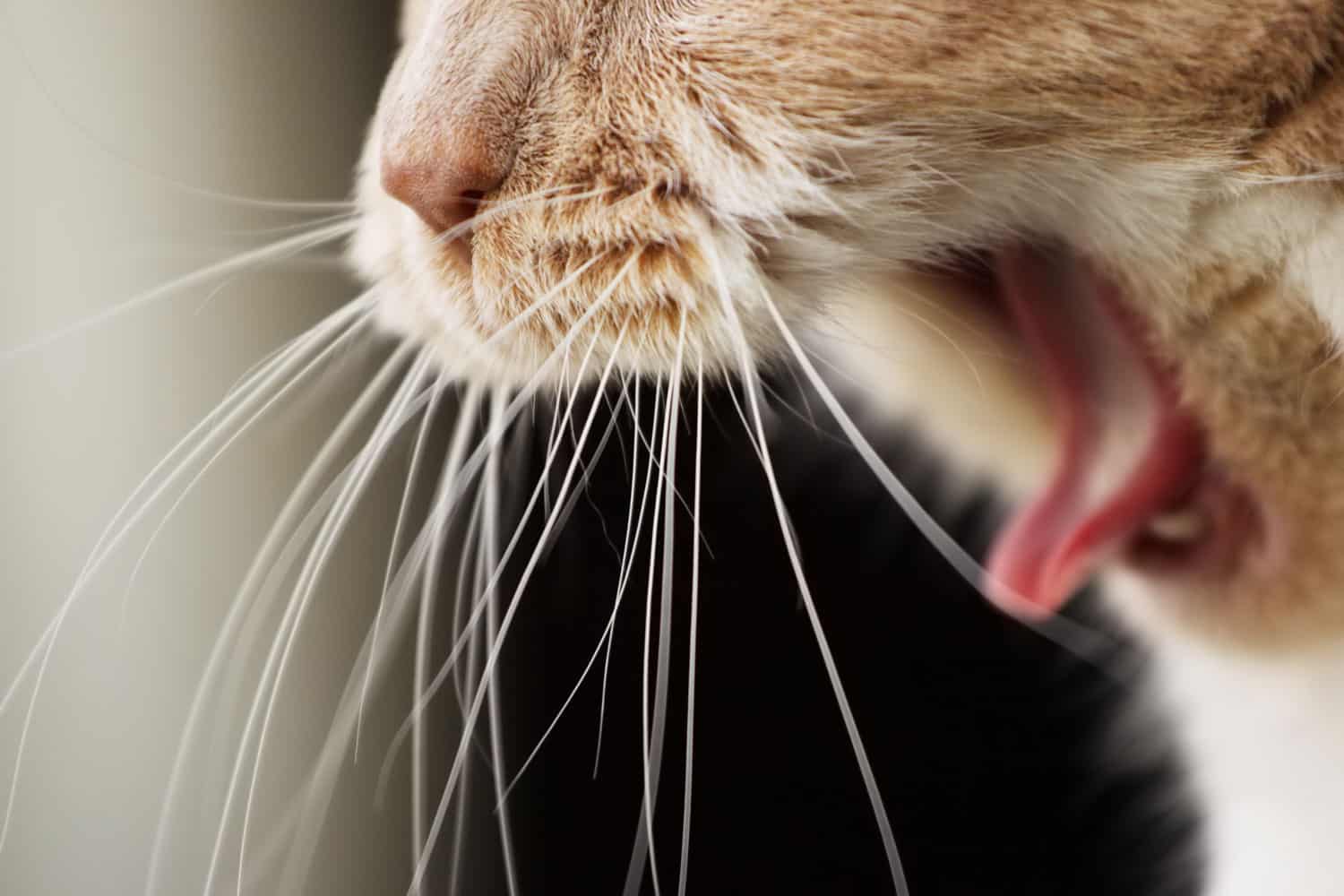
Symptoms of an allergic reaction in cats may include vomiting, diarrhea, itching, and swelling.
If you notice any signs of an allergic reaction after giving your cat peanut butter, bring them to the veterinarian immediately.
Salmonella Infection
Another potential risk when offering your cat peanut butter is the presence of Salmonella.
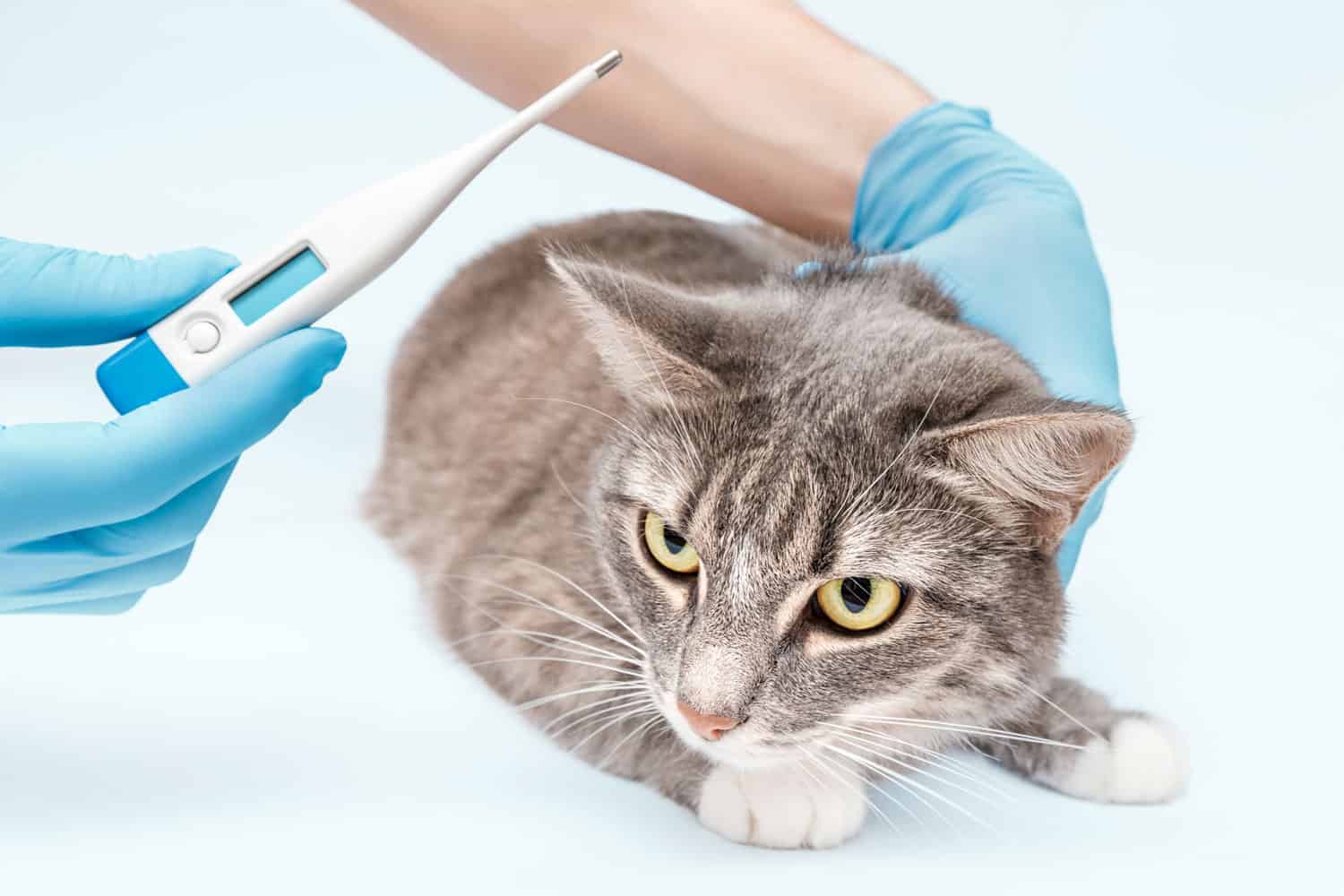
This bacteria can cause digestive issues and illnesses in cats.
Therefore, it's crucial to ensure the peanut butter you give your cat is free from contamination.
Choking Hazards
Peanut butter is thick and sticky, which can cause a choking hazard for cats.
They might struggle to swallow it properly, leading to respiratory problems.
Considering the added risks of high fats, sugars, salt, and calories found in peanut butter, it's clear that this human treat might not be suitable for your feline friend.
Moderation is Key: Giving Peanut Butter as a Treat
If you decide to give your cat peanut butter as an occasional treat, remember to do so in moderation.
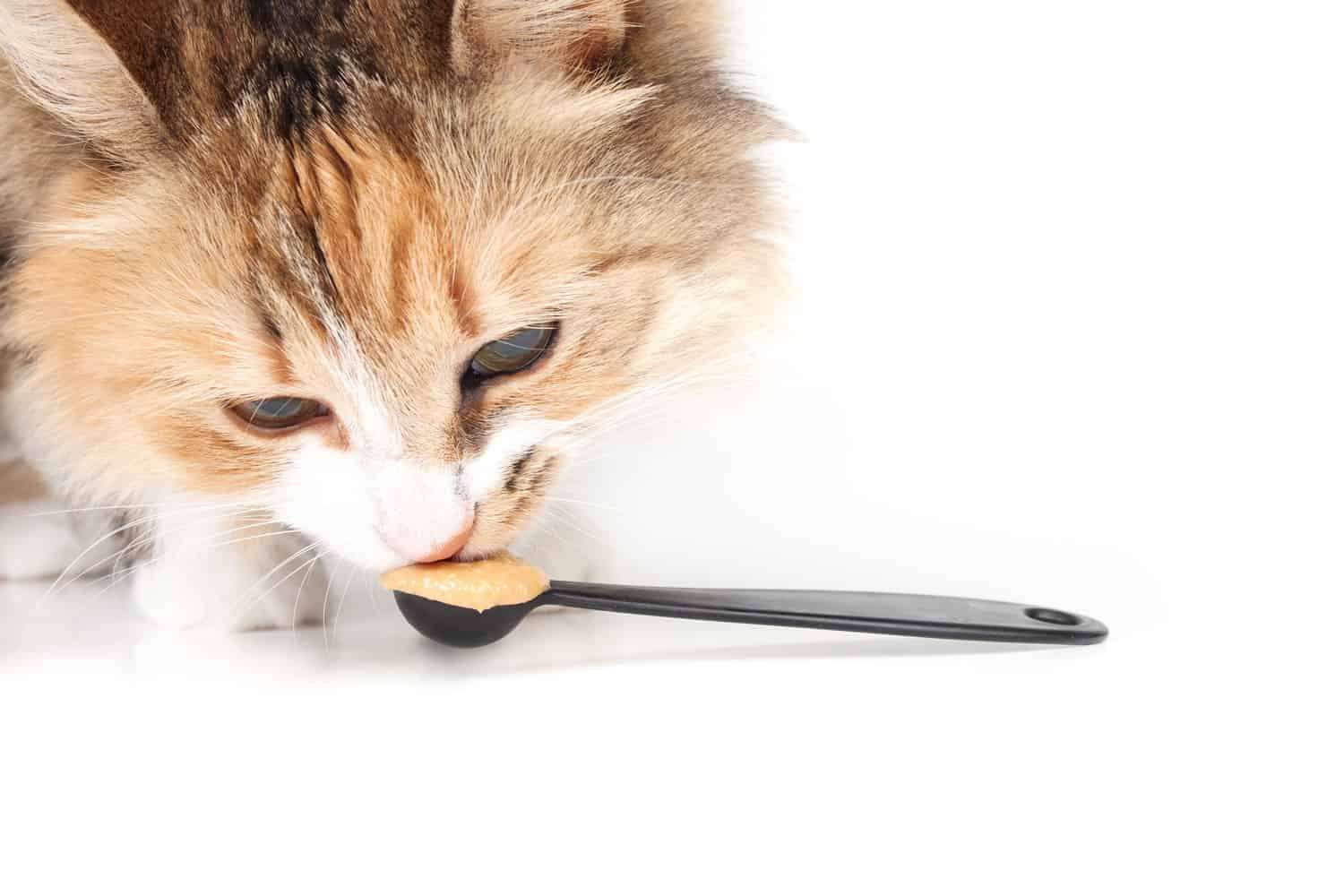
A tiny amount should suffice, and always avoid giving them peanut butter containing added sugars, artificial sweeteners, or xylitol, as these can harm your feline friend.
Safe Alternatives and Treats for Cats
You may be wondering if peanut butter is safe for your feline friend. While peanut butter is not toxic to cats, it's not an ideal treat for them.
In this section, we'll explore some cat-friendly treat options and safe human foods that can be enjoyed by your pet.
Cat-Friendly Treat Options
When it comes to treating your cat, there are plenty of store-bought options specifically formulated for feline health.
Look for cat treats that are low in calories and made with high-quality ingredients. Some popular options include:
Freeze-dried Protein Treats
These treats are made from a single protein source, like salmon or chicken. They are low in calories and provide essential nutrients your cat will love.
Click here to see this freeze-dried treat on Amazon.
Dental Chews
Dental chews are designed to help clean your cat's teeth while providing a tasty treat.
Click here to see this dental chew on Amazon.
Look for chews that are approved by the Veterinary Oral Health Council (VOHC).
Catnip Toys
Safe and entertaining, catnip toys combine playtime and snack in one.
Click here to see this catnip toy on Amazon.
These toys keep your cat engaged and satiated without adding to their caloric intake.
Human Foods Pets Can Enjoy
While it's important to be cautious when feeding your cat human foods, there are some safe options that can be enjoyed in moderation.
Here are a few human-food treats your cat can enjoy:
Cooked Poultry
Chicken and turkey can be excellent sources of protein for your cat as long as they are cooked and unseasoned.
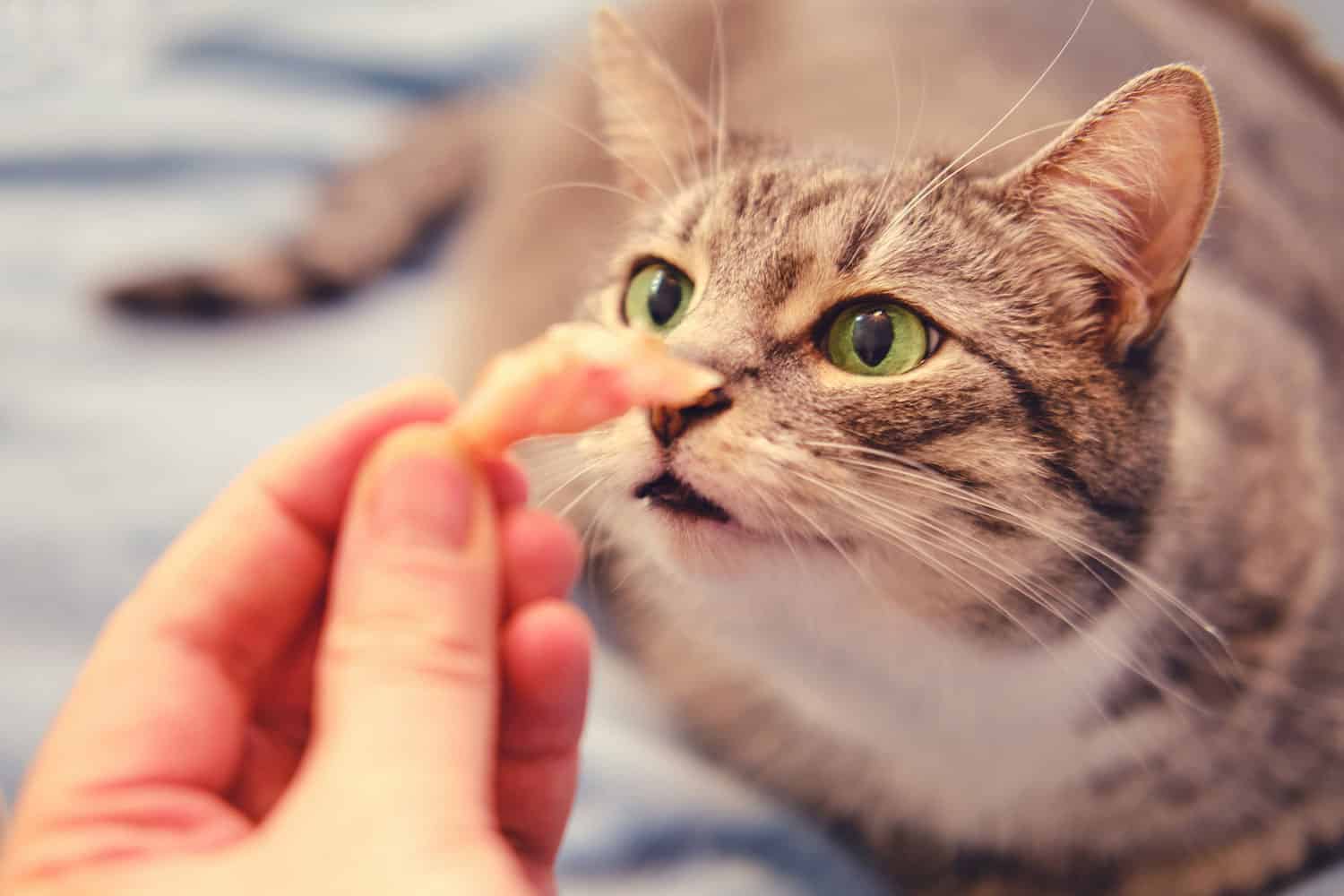
Be sure to remove all bones, as they can be harmful to your cat's digestive system.
Lean Deli Meats
Ham, turkey, and chicken deli meats can be given to your cat in small quantities.
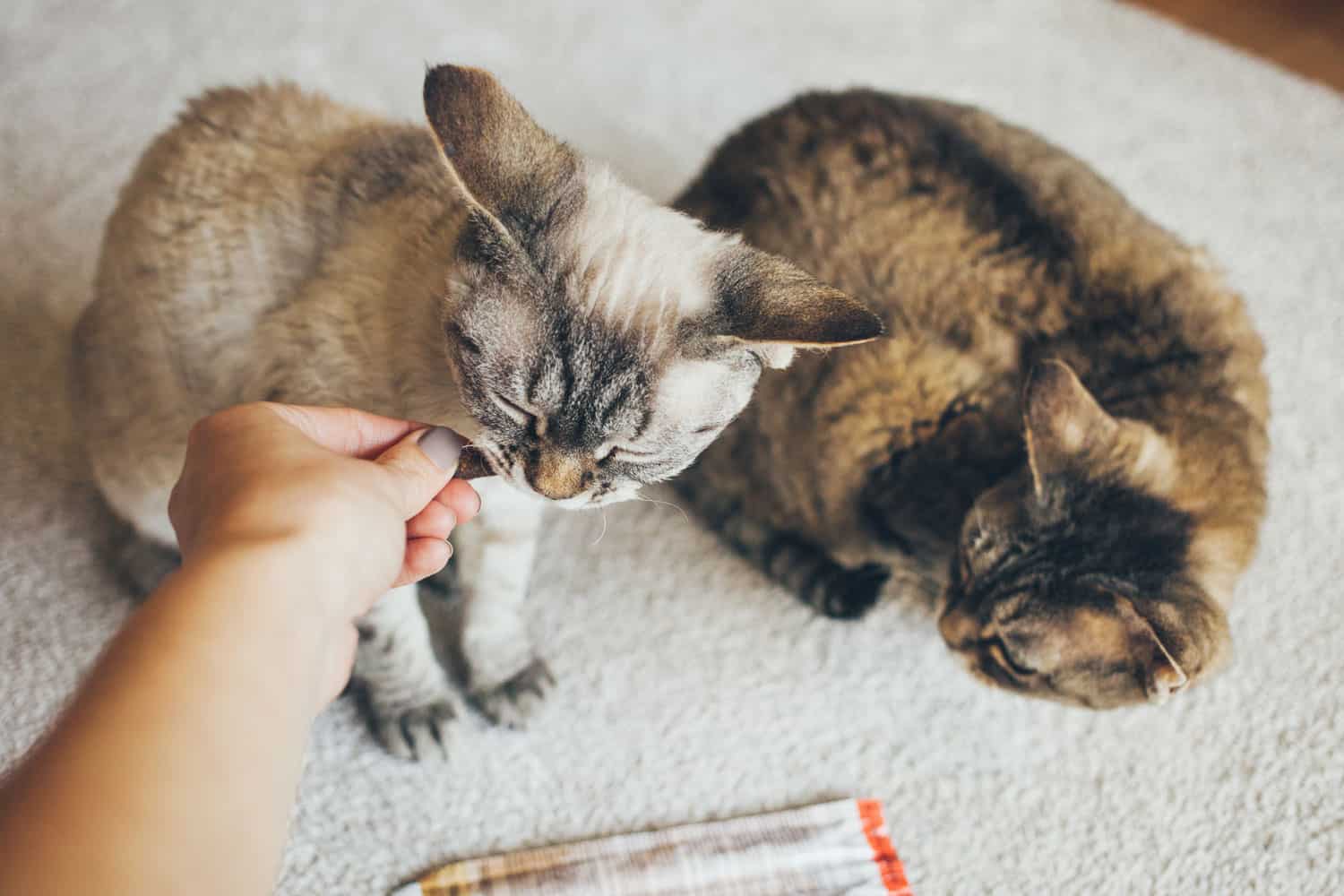
Keep in mind to avoid processed and salted deli meats, as they can be harmful to your cat's health.
Cheese
Some cats enjoy the taste of cheese.
However, many cats are lactose intolerant, so it's best to stick to small amounts of hard cheese, like cheddar or Swiss.
Click here to see this cheddar cheese on Amazon.
Using Peanut Butter for Medication Administration
While peanut butter is not a staple in a cat's diet, it can serve a practical purpose: helping administer medication.
This method can be effective, but it requires careful execution.
Safe Methods
When using peanut butter to give your cat medication, spread a small amount onto a treat or a piece of kibble.
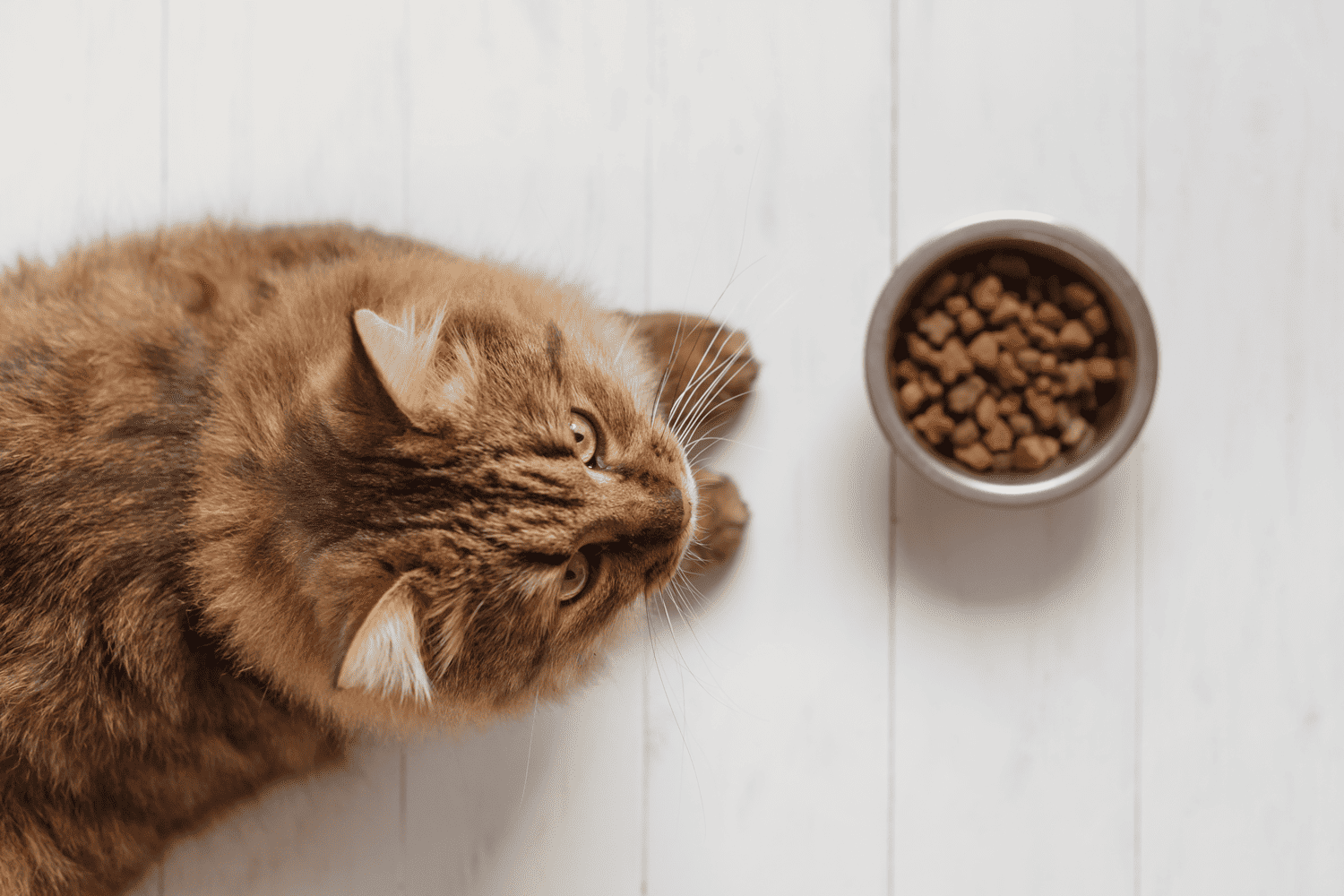
Ensure the medication is well hidden within the peanut butter, making it more appealing for your cat to consume.
When introducing peanut butter, monitor your cat's reaction.
If they have an allergic reaction or gastrointestinal issues, discontinue use and consult with your veterinarian.
Keep in mind that peanut butter is high in fat and calories, so it's essential to only use a small amount when administering medication.
Alternatives
While peanut butter is an option for medication administration, there are other alternatives you can consider that may be more suitable and healthier for your cat.
Pill Pockets
These are special treats designed to hold and mask the taste of pills. They come in various flavors to suit your cat's preference.
Click here to see this pack of pill pockets on Amazon.
Soft Treats
Soft treats can be easily molded around the pill, making it easier for your cat to consume without detecting the medication.
Click here to see this soft treat on Amazon.
Liquid Medication
If possible, ask your veterinarian if the medication comes in a liquid form, which can be administered using a dropper or mixed with wet cat food.
Click here to see this cat medicine dropper on Amazon.
The Final Word on Feline Peanut Butter Consumption
Cats need a diet based on animal tissues.
While peanut butter isn't toxic, its nutritional profile doesn't align with a cat's needs and it carries potential health risks.
It can be used sparingly as a treat but shouldn't be a regular part of their diet. Always stick to a balanced, species-appropriate diet.
Keep an open mind, but always put your cat's well-being first. After all, a happy cat is a healthy cat!
Check out some appropriate treats for your cats below.
What Are The Best Cat Treats For Training?
Some elements on this page may have been created by our team using advanced AI to provide you with top-notch cat inspired ideas. Read more about our AI Content Policy.






